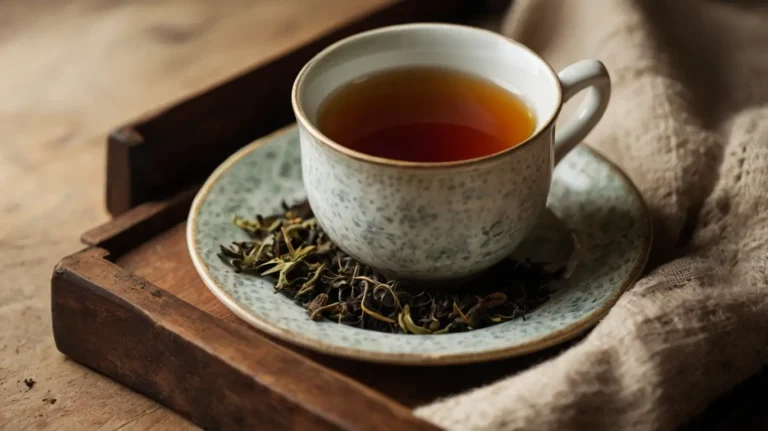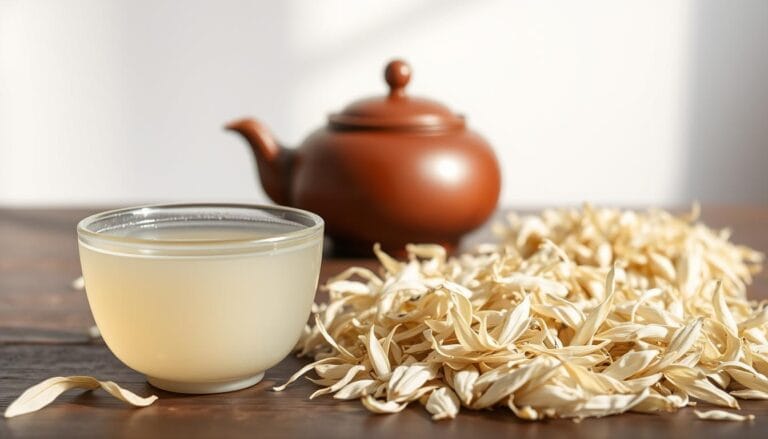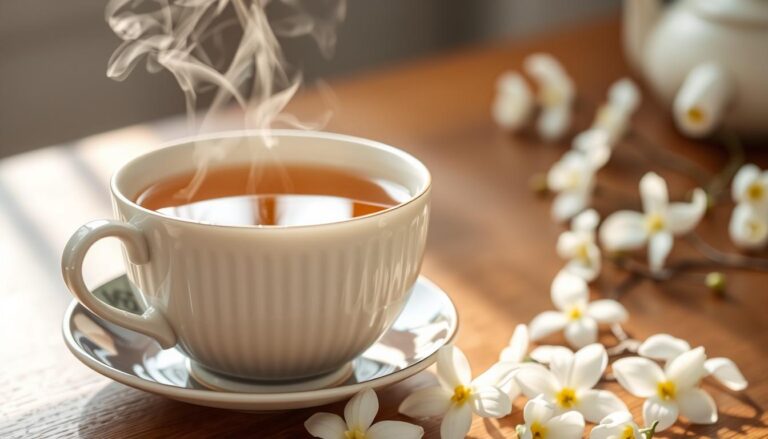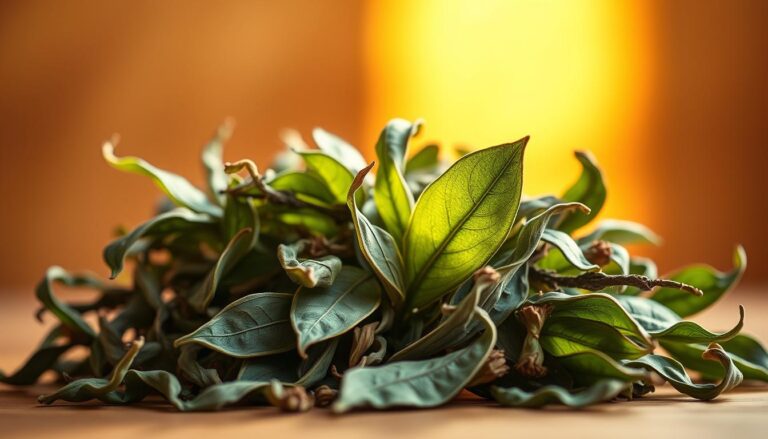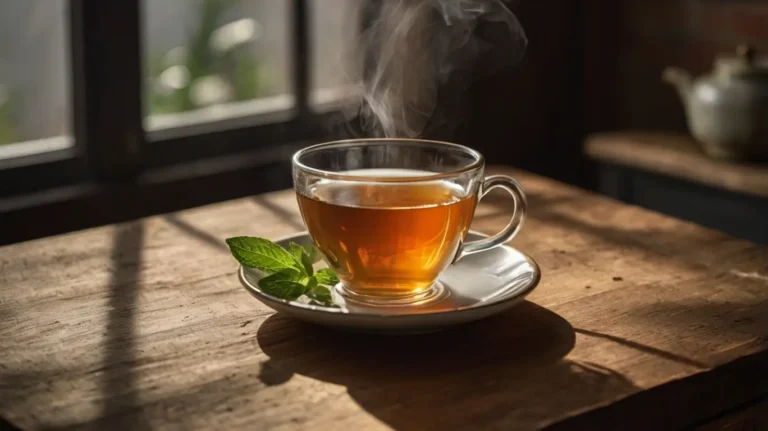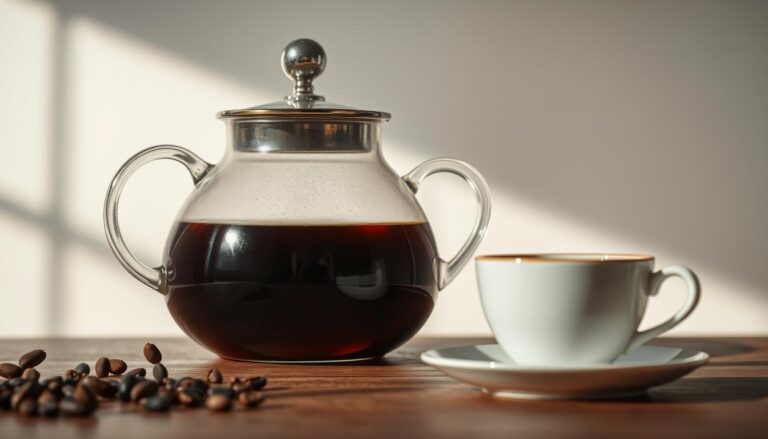7 Surprising Facts About White Tea Caffeine
The Hidden Truth Behind Your Soothing Cup of White Tea
You’ve probably reached for a cup of white tea thinking it’s the lightest, most calming choice among all teas. Maybe you even believed it to be virtually caffeine-free, the perfect evening drink. But here’s where things get interesting — white tea carries secrets most people overlook. Like you, many tea lovers assume its pale color and delicate flavor mean it won’t pack much of a punch. But as you’ll soon discover, there’s more to white tea caffeine than meets the eye.
Table of Contents
Let’s dive in and uncover 7 facts that might just change the way you brew your next cup.
Fact 1 — Yes, White Tea Contains Caffeine
You might have heard whispers that white tea is caffeine-free. But let’s set the record straight: white tea comes from the Camellia sinensis plant — the same plant that gives you green, oolong, and black tea. And that plant naturally contains caffeine.
So, does white tea have caffeine? Yes, it absolutely does. The amount can vary, but it’s there in every sip you take. While it might be lower than black tea in some cases, certain types of white tea can actually rival green tea in caffeine content.
According to health resources like the Mayo Clinic, even the lightest teas carry caffeine, and white tea is no exception.
Fact 2 — Caffeine Levels Vary by Type of White Tea
Here’s something else you might not know: not all white teas are created equal when it comes to caffeine. Depending on the type of white tea you choose, you could be sipping on a brew that’s almost as energizing as green or even black tea.
Types of White Tea and Their Caffeine Content:
| White Tea Type | Caffeine (per 8 oz cup) |
| Silver Needle | 15-30 mg |
| White Peony | 30-55 mg |
| Shou Mei | 40-60 mg |
- Silver Needle is often the lightest in caffeine, making it a better option if you’re looking to cut back.
- White Peony brings a stronger kick with more leaves and buds used in the blend.
- Shou Mei? It can surprise you with caffeine levels higher than expected.
So next time you shop for white tea, you’ll know that your choice directly affects how much caffeine ends up in your cup.
Fact 3 — Brew Time & Temp Affect Caffeine Extraction
Now, here’s where you get to take control. Did you know that how you brew your white tea changes its caffeine punch?
When you steep your tea longer and with hotter water, more caffeine is extracted. If you prefer a gentler experience, pay attention to your brewing technique.
Tips to Control Caffeine:
- Steep at 175°F (80°C) or lower to keep caffeine modest.
- Limit steeping to 2-3 minutes.
- Avoid using more than 1 teaspoon per cup.
Research shows caffeine is highly soluble in hot water — meaning, the hotter and longer you brew, the more you get.
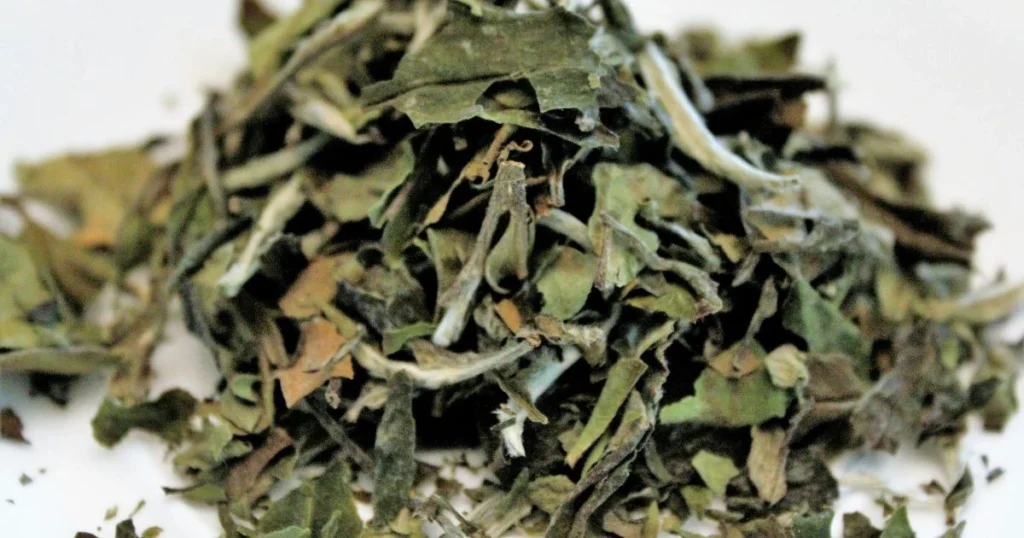

Fact 4 — White Tea Can Rival Green Tea in Caffeine
Think green tea is always stronger than white tea? Not necessarily. Depending on the type and brew method, white tea caffeine levels can match or even exceed some green teas.
Caffeine Comparison Table:
In fact, teas like Shou Mei or White Peony often have similar or slightly higher caffeine than lighter green teas. So if you’re choosing white tea because you think it’s the “safer,” low-caffeine option, it’s time to rethink.
Fact 5 — Arizona Blueberry White Tea Has Added Caffeine
Maybe you’ve spotted those colorful bottles of Arizona Blueberry White Tea in stores. You grab one, thinking you’re getting the gentle benefits of white tea with a fruity twist. But here’s a little surprise: these bottled versions often have added caffeine and sugar.
- Arizona Blueberry White Tea contains around 15-20 mg of caffeine per serving.
- It’s sweetened and doesn’t offer the same benefits as pure, loose-leaf white tea.
So, if your goal is to manage caffeine carefully, you’ll want to stick with real, loose-leaf or bagged white tea — and skip the bottled stuff.
Fact 6 — White Tea Offers a Smoother Energy Boost
Here’s some good news: the caffeine in white tea doesn’t hit you like a slap in the face. Thanks to the presence of an amino acid called L-theanine, white tea provides a smoother, more sustained energy lift.
Why White Tea Feels Different:
- L-theanine helps calm your nervous system.
- You get focused alertness without the jitters.
- Caffeine release is slow and steady.
Studies show that L-theanine balances caffeine’s effects, promoting calm focus rather than anxious energy. So, when you sip white tea, you might find you feel energized but still centered — making it ideal for work, reading, or creative tasks.
Fact 7 — You Can Control Caffeine in Your Cup
Best of all? You have the power to adjust how much caffeine ends up in your white tea. Whether you’re sensitive to caffeine or just want to enjoy a late-night brew, a few tweaks to your routine make a big difference.
Tips to Lower Caffeine in White Tea:
- Use fewer leaves (1 tsp per 8 oz is plenty).
- Steep shorter (1-2 minutes only).
- Brew at a lower temperature (160-175°F).
White Tea Brewing Guide for Low Caffeine:
| Brew Style | Caffeine Level |
| 160°F, 2 min steep | Low |
| 185°F, 5 min steep | High |
So next time you make your cup, remember: you’re in full control of how much caffeine flows into your mug.
Bonus: White Tea Caffeine-Free Recipes
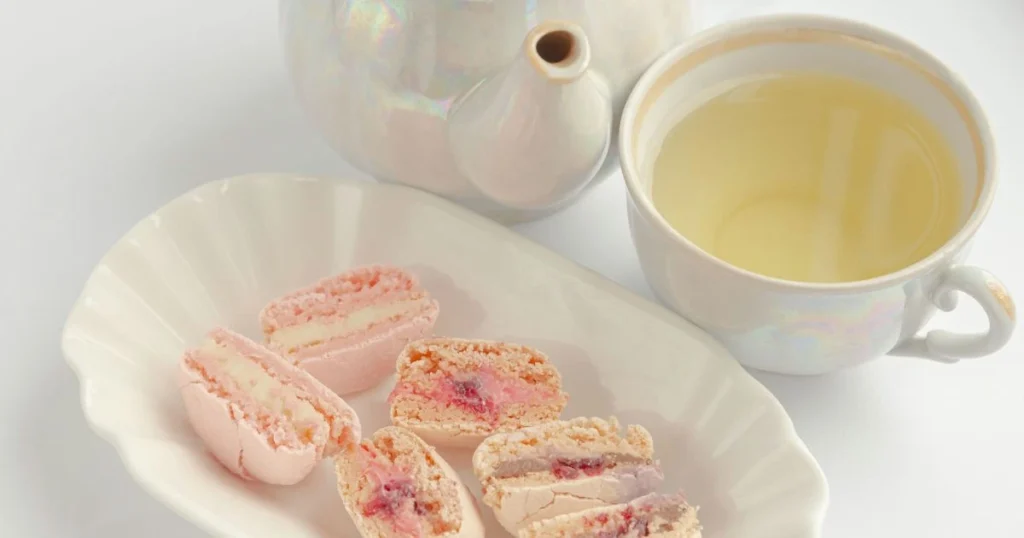

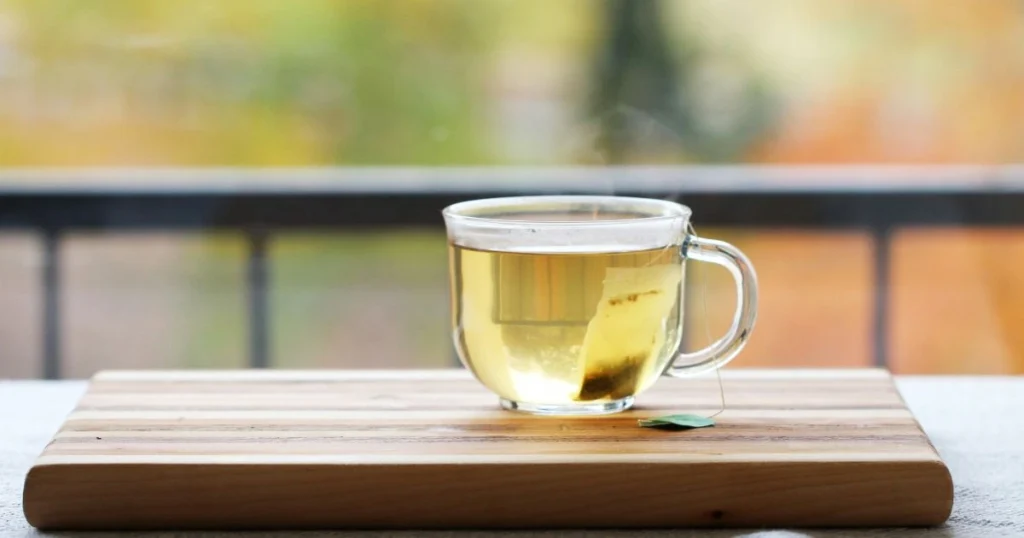

If you still want to enjoy the flavor of white tea but cut out caffeine entirely, you’re not out of options. Try crafting your own white tea-inspired mocktails using herbal bases.
Caffeine-Free White Tea Mocktail Recipe
| Ingredient | Amount |
| White tea flavor extract | 1 tsp |
| Rooibos tea (steeped) | 8 oz |
| Fresh pear juice | 2 oz |
| Ginger syrup | 1 tsp |
| Ice cubes | As needed |
Just mix, stir, and enjoy a refreshing drink with zero caffeine but all the light, fruity vibes of white tea.
FAQs About White Tea Caffeine
Is white tea caffeine-free?
No, white tea is not caffeine-free. It contains 15-55 mg of caffeine per cup, depending on type and brew method.
Does white tea have more caffeine than green tea?
Sometimes! Certain white teas like Shou Mei can have caffeine levels equal to or higher than some green teas.
How much caffeine is in white tea compared to coffee?
An 8 oz cup of white tea has 15-55 mg of caffeine, while coffee packs 80-100 mg or more.
Can I drink white tea before bed?
If you’re sensitive to caffeine, it’s best to choose a low-caffeine brew or stick to herbal teas in the evening.
How can I reduce caffeine in my white tea?
Steep at lower temperatures (160-175°F) and for less time (1-2 minutes) to keep caffeine low.
Conclusion: Now You Know the Real Story on White Tea Caffeine
So, there you have it — 7 surprising facts that reveal the truth about white tea caffeine. It’s not the caffeine-free angel some claim, but it’s also not the villain. With the right knowledge (and a little brewing finesse), you can enjoy the smooth energy and delicate flavor without overdoing the buzz.
Next time you pour yourself a cup, you’ll know exactly what’s inside — and you’ll have the power to tailor it to your taste and needs.
Ready to explore more about teas that fit your lifestyle? Dive into our full guide on caffeine in teas and find your perfect match today!


